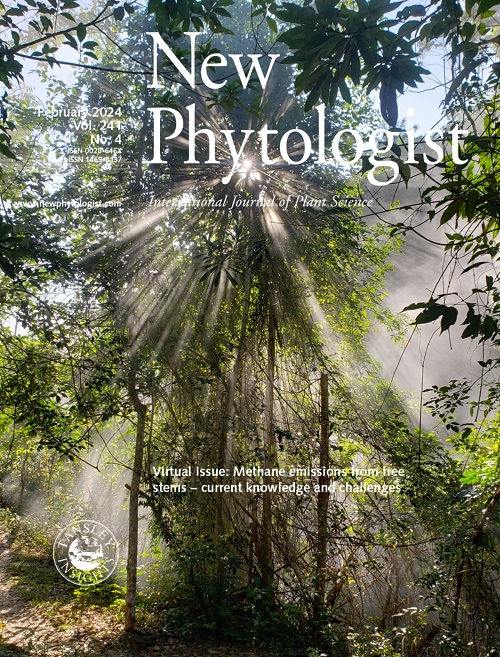未来树木的死亡率是不可能观测到的,但一个新模型揭示了为什么热带树木的特性比气候变化变异对预测水力衰竭更重要。
IF 9.4
1区 生物学
Q1 Agricultural and Biological Sciences
引用次数: 0
摘要
本文章由计算机程序翻译,如有差异,请以英文原文为准。
Future tree mortality is impossible to observe, but a new model reveals why tropical tree traits matter more than climate change variability for predicting hydraulic failure.
求助全文
通过发布文献求助,成功后即可免费获取论文全文。
去求助
来源期刊

New Phytologist
PLANT SCIENCES-
CiteScore
17.60
自引率
5.30%
发文量
728
审稿时长
1 months
期刊介绍:
New Phytologist is a leading publication that showcases exceptional and groundbreaking research in plant science and its practical applications. With a focus on five distinct sections - Physiology & Development, Environment, Interaction, Evolution, and Transformative Plant Biotechnology - the journal covers a wide array of topics ranging from cellular processes to the impact of global environmental changes. We encourage the use of interdisciplinary approaches, and our content is structured to reflect this. Our journal acknowledges the diverse techniques employed in plant science, including molecular and cell biology, functional genomics, modeling, and system-based approaches, across various subfields.
 求助内容:
求助内容: 应助结果提醒方式:
应助结果提醒方式:


